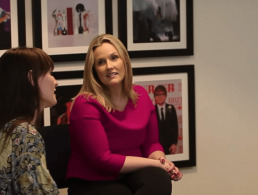The fintech sector is growing, but what does that mean for those with banking experience? Bank of Ireland’s Ita O’Sullivan says there is a variety of new roles in the industry.
A new way of providing financial products and services offers new career opportunities inside the financial services sector, right? Well, somewhat.
Really, it depends on what kind of fintech you’re looking for a career with. If it’s the kind of fintech that is picking one thing in the financial world and disrupting it using a new technology then maybe, yes, you’ll require different roles.
Take Plynk, for example. You can send your friend your share of the pizza bill in an instant. Plynk isn’t trying to be a bank, it just wants to be really good at that one thing, which is instant movement of money; and so, all Plynk needs to hire for is the roles connected to instant moving of money.
Cue the need for a small, smart tech team building a cool app with iOS and Android developers at the fore.
By contrast, Starling Bank is trying to be an online, technology-driven bank. That means as well as building all the cool tech stuff, Starling is trying to offer all the services a traditional bank can provide, and needs to do so while complying with full range of national and international banking regulations.
So, suddenly, the careers page for Starling shows cool fintech jobs but all those roles you’d expect to see in a traditional bank, too.
Fintech doesn’t necessarily spell the end of career possibilities for those with traditional banking skills and experience; it can simply mean adapting that expertise into a different, more ‘jeans and t-shirt’ kind of office. With those caveats in mind, here are my big bets on the roles in fintech.
App and site developers
Fintech companies have technology at their core and that means the key roles that they need to fulfil are technology roles. Great news for developers, and really all kinds of developers, but particularly for iOS, Android, SRE and full-stack developers – skills fundamental to fintech apps and sites.
For developers who are all about APIs, fintechs are all about you! If you’re obsessed with security protocols and protecting your tech infrastructure, well, there’s a whole new world of opportunity for you when the bank safe lives in the cloud.
UX
The challenge for UX/UI teams is exciting, too. Making online banking user-friendly, informative and intuitive to use is not easy to achieve. It’s even more challenging on the small screen of a mobile phone.
Take it a step further and what does the banking UI of the future look like on a VR headset? To be a disruptive force in fintech, you need to give your customers a user experience that is so slick, that before they’ve even signed up for your service or online bank, they are convinced you are at the cutting edge of tech. A fintech’s app or website is how they prove this, so to say the UX bar is high …
Customer support, fintech style
Moving support from a branch to an online world also offers opportunities in emerging technologies. Fintechs don’t have huge customer support teams – one fintech CEO recently told me he wanted one customer service agent to support 100,000 customers a day.
There’s only one way to do that: hire a human to create and maintain your chatbots. The role of bots is bigger than chat, though. Smart AI systems can certainly help provide customer support but their roles in detecting fraud before the customer has even realised it has taken place, or in validating identity as someone signs in, are equally as important.
Product managers
Disruptive technology usually wins by understanding a customer really well and then providing an amazing out-of-the-box solution to a problem they are having.
CEOs typically fulfil this function in an early-stage company but as a company scales, you need a professional product manager to do this. I may be biased, being a qualified product manager, but this role truly is vital to ensure that disruptive firms stay disruptive.
People and culture evangelists
Keeping staff happy and engaged matters as much to a fintech as it does to any other tech company. The fintech jobs above come with pricey starting salaries. Getting someone in the door is hard enough – the last thing you want to do is to have to replace them regularly.
The HR gurus who hire tech well, the culture champions who make your office a great place to work, and the people managers who build a diverse and inclusive workplace where people thrive are all critical to attracting and maintaining talent in fintech jobs.
If you like a fast-paced and challenging environment, then fintech could be the industry for you. This is a special moment in fintech’s very young history. With emerging technology such as AI and emerging legislation such as PSD2, the opportunity is ripe for the right fintech teams. The only question left is: do you have what it takes to be on one of those teams?
Ita O’Sullivan is the start-up community manager at Bank of Ireland in Cork. O’Sullivan is also a qualified product manager, offering one-to-one support to start-ups on idea validation and business model canvas.




